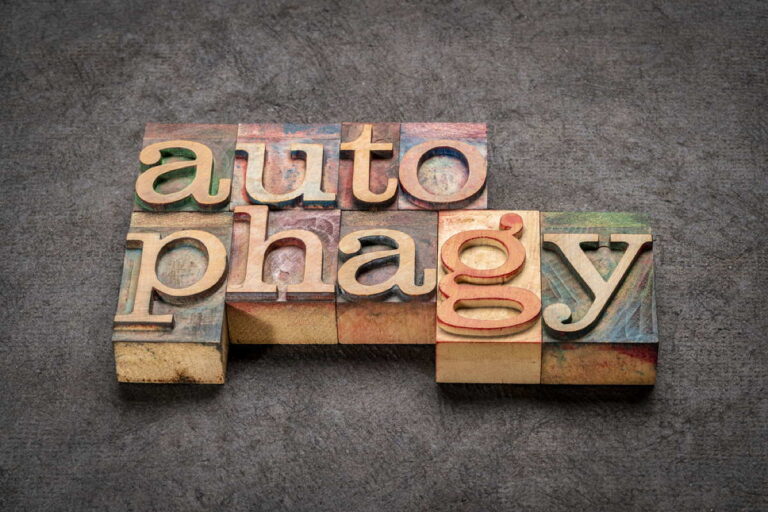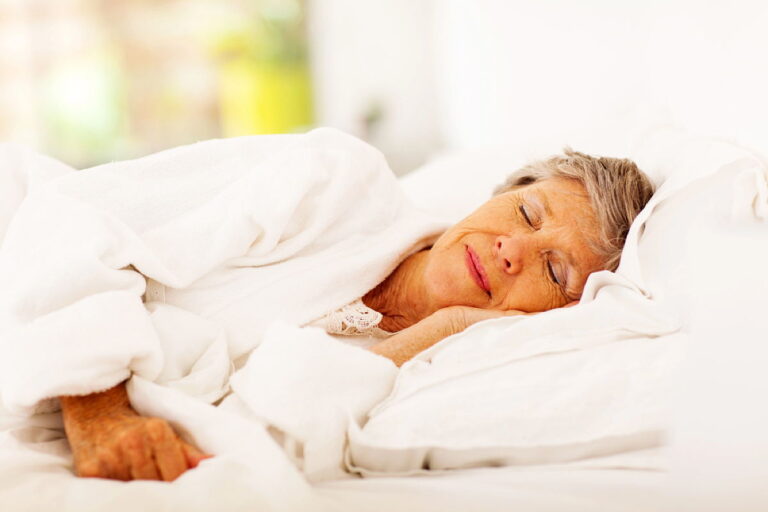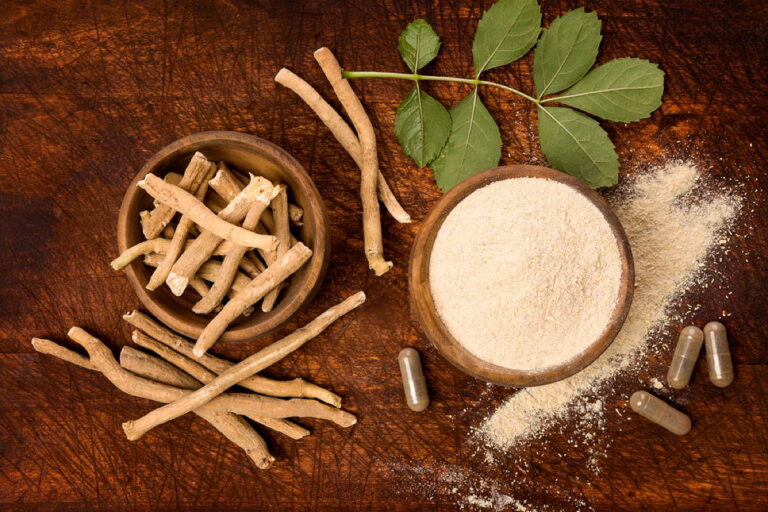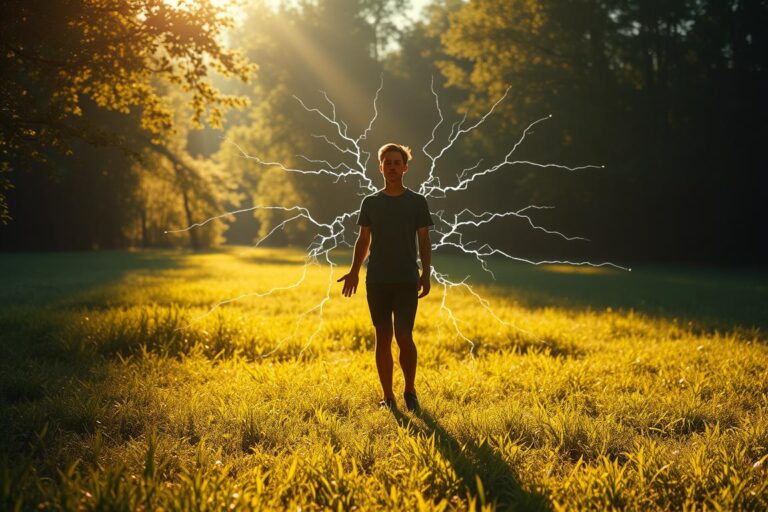Acupuncture for stress and burnout: can it really help?
Did you know that nearly 70% of people who seek acupuncture therapy for stress experience a noticeable improvement in their wellbeing? With burnout affecting up to 50% of employees in industries such as healthcare and education, this healing method is becoming increasingly important. Burnout often manifests itself through constant fatigue, sleep disturbances and physical discomfort, which can significantly affect quality of life. But can acupuncture really help with stress and burnout, and how effective is it compared to other treatment methods?
Acupuncture is not only seen as symptom relief, but is also highly valued as a preventative measure. It has been proven that acupuncture can reduce stress hormone levels, improve sleep quality and relieve physical pain. The World Health Organization (WHO) recognizes acupuncture as an effective treatment for a variety of conditions, including burnout. What is particularly interesting is that acupuncture often has no significant side effects, making it a safe therapeutic option.
Important findings
- Acupuncture can lower stress hormone levels and improve sleep quality.
- Burnout affects up to 50% of employees in certain industries such as healthcare and education.
- 70% of people who use acupuncture for stress experience a noticeable improvement in their well-being.
- Acupuncture is recognized by the WHO as an effective treatment method.
- The method is generally painless and has no significant side effects.
Let’s take a closer look at what burnout and stress are and how Traditional Chinese Medicine (TCM), in particular acupuncture, can play a role here.
Introduction to burnout and stress
Burnout is a state of chronic exhaustion caused by prolonged stress and frustration, especially in the workplace. This condition affects a wide section of the population today, including managers, teachers and nurses.
What is burnout?
Burnout includes symptoms such as permanent fatigue, a negative attitude towards work and the feeling of not having achieved anything. Physical complaints such as headaches and sleep disorders can also occur. Without appropriate intervention, burnout can lead to serious health problems such as heart disease and depression.
Causes and symptoms of stress
Stress can be caused by various factors such as overwork and a lack of work-life balance. Symptoms include fatigue, difficulty concentrating and physical signs such as headaches. Traditional Chinese Medicine (TCM) and acupuncture play a crucial role in reducing stress and alleviating burnout symptoms. Needle treatment for stress has been shown to be effective in lowering stress hormones and improving overall well-being.
Traditional Chinese Medicine (TCM) and its role in stress and burnout
Traditional Chinese Medicine (TCM) views the body as a complex system of interactive elements whose health depends on a balance between the forces of yin and yang. The concept of this balance is fundamental to understanding stress and burnout from a TCM perspective. Excessive activity (yang) without sufficient rest (yin) can disturb this balance and lead to burnout.
Basics of TCM
The basics of TCM include various treatment methods such as acupuncture, herbal medicine and qigong. The aim of TCM is to restore balance in the body and promote natural self-healing. This is often achieved through the use of acupuncture, a method known for its ability to promote relaxation through needles.
TCM and the concept of yin and yang
The concept of yin and yang is central to TCM. Yin stands for calmness and substance, yang for activity and energy. An imbalance between these two forces can lead to various health problems, including stress and burnout. TCM practitioners use acupuncture for a stress-free life by restoring the balance between yin and yang.
| Application | TCM principle | Result |
|---|---|---|
| Acupuncture | Balance of yin and yang | Relaxation through needles |
| Qigong | Strengthening the life energy | Energetic balance |
| Herbal medicine | Promotion of self-healing | Health promotion |
Acupuncture: the basics
Acupuncture is based on the theory of meridians, through which vital energy (Qi) flows. By inserting needles at specific points to relieve stress, blockages in the energy flow are dissolved and physical and mental balance is restored. Scientists believe that acupuncture can lower stress hormone levels and support the immune system, which helps to alleviate burnout symptoms.
How does acupuncture work?
Acupuncture works by stimulating specific points on the body’s meridians. These points are stimulated by thin needles, which leads to improved blood circulation and pain relief. Needles for stress management help to relieve tension and promote the healing process.
- The needles are inserted at specific points
- Stimulation leads to the release of endorphins
- Relief from pain and stress symptoms
Scientific principles and mode of action
The 2023 dissertation, which looked at the use of acupuncture in German psychiatric and psychosomatic clinics, examined specific clinical pictures such as dementia, schizophrenia, bipolar disorder, depression and anxiety disorders. The analysis showed that acupuncture can reduce stress levels and improve mental well-being.
Scientists have found that acupuncture triggers various physiological changes in the body, both locally and systemically. This includes the regulation of stress hormones and the improvement of the immune system. Randomized controlled trials and meta-analyses have further confirmed these effects, demonstrating the success rate of acupuncture in coping with stress and managing stress with needles. For example, 30,000 doctors in Germany have already introduced integrative acupuncture into their practices.
| Clinical picture | Acupuncture points |
|---|---|
| Depression | Local points on meridians |
| Schizophrenia | Special brain points |
| Anxiety disorders | Points along the heart meridian |
Reduce stress with needles
In today’s fast-paced world, many people suffer from stress-related complaints such as sleep disorders and exhaustion. Acupuncture can be used as a stress-relief method to promote the body’s natural response to relaxation and reduce stress hormones. According to the World Health Organization (WHO), acupuncture is effective for numerous disease indications, including depressive moods and restlessness.
Acupuncture is a healing method of Traditional Chinese Medicine (TCM) that is over 3,000 years old. Studies show that the stimulation of energy points can reduce hormones that are released during chronic stress. For example, a study on rats proved that acupuncture can contribute significantly to reducing stress. The animals received 20 minutes of electro-acupuncture at the Zusanli point every day over a period of two weeks.
The price ranges for stays in TCM hotels vary and therefore offer an opportunity for different budgets to experience acupuncture as a stress-relieving method:
| Hotel/Clinic | Place | Price per week (7 nights, double room, full board) |
|---|---|---|
| Clinic & Health Center at the Kurpark | Germany | from 771€ |
| TOMESA Specialist Clinic & Health Center | Germany | from 748€ |
| Malteser Klinik von Weckbecker | Germany | from 2036€ |
| Ypsylon Resort | Sri Lanka | from 477€ |
The results of the rat study indicate that electroacupuncture can significantly alleviate the physiological consequences of chronic stress. Rats that were treated at the Zusanli point prior to cold stress showed no increased levels of stress hormones and neuropeptide, in contrast to the untreated control groups.
Acupuncture aims to restore inner peace and energetic balance. This natural medical method can therefore make a valuable contribution to stress management and promote well-being in the long term.
How acupuncture helps with burnout
Acupuncture therapy for stress offers several benefits for people suffering from burnout. This ancient method of Traditional Chinese Medicine (TCM) is known for its ability to lower stress hormones such as cortisol and stimulate the parasympathetic nervous system. This restores the flow of energy (Qi) in the body and promotes balance.
Relief of physical symptoms
Acupuncture can alleviate various physical symptoms of burnout. These include chronic fatigue, headaches and muscle tension. Stimulating certain acupuncture points improves blood circulation, which increases the supply of oxygen and nutrients to the tissue and muscles. This contributes to the reduction of muscle pain and general relaxation. In addition, patients tend to report an improvement in immune function after acupuncture sessions, which enhances overall well-being.
Improving the quality of sleep
Another remarkable result of acupuncture therapy for stress is the improvement in sleep quality. Many people with burnout struggle with insomnia or restless sleep. Acupuncture helps to regulate the sleep-wake cycle by promoting the release of melatonin. This leads to deeper and more restful sleep. Regular acupuncture sessions can therefore provide lasting relief from sleep disorders and improve emotional stability and resilience to stressful situations.
The effect of acupuncture on the nervous system
Acupuncture has developed considerably since its introduction in Germany in the 1950s and is now offered by around 40% of orthopaedic practitioners in their practices. The effect on the nervous system and the reduction of stress with needles play a central role.
Stress hormones and their regulation
The technique of acupuncture influences the hypothalamic-pituitary-adrenal axis, which is responsible for the regulation of stress-related hormones such as cortisol. The targeted placement of needles can improve the regulation of hormone levels, which leads to a reduction in physical and emotional stress symptoms. Reducing stress with needles supports balance in the autonomic nervous system and contributes to relaxation. The main acupuncture points, of which there are around 365, are located on specific meridians and specifically help to activate the body’s own stress management mechanisms.
Endorphin release and emotions
Another important aspect of acupuncture is the promotion of endorphin release. Endorphins are the body’s own happiness hormones that naturally relieve pain and increase well-being. Acupuncture stimulates the release of these hormones, which leads to increased pain tolerance and positive emotions. Patients often report deep relaxation and a sense of balance after a session, which is an effective way to relieve stress with needles.
| Acupuncture points | Effects on stress |
|---|---|
| Valley depression on the back of the hand | Relief from headaches and stress |
| Temple area | Highly effective in reducing stress |
| Liver meridian | Improvement of energy flow and stress relief |
Although the scientific evidence for the effectiveness of acupuncture in reducing stress is often lacking, many patient reports and practical applications show that acupuncture is an effective tool for reducing stress with needles. However, it remains important to consider this treatment as part of a holistic therapeutic approach.
Ear acupuncture: a special form of acupuncture
Ear acupuncture, also known as auriculotherapy, is a fascinating method within traditional Chinese medicine. It uses acupuncture points on the ear for stimulation and aims to treat various physical and psychological problems. Of particular note is the Shen Men point, which is specifically associated with promoting relaxation through needling and reducing stress.
The mode of action of ear acupuncture includes supporting weight loss through the hunger point as well as pain relief and treatment of functional disorders via numerous points on the auricle. One particular area, the tip of the ear, is connected to the head and the senses; stimulating it can help with headaches and sinus problems. The ear liver point is often stimulated to support liver function and detoxification.
Employees of the National Acupuncture Detoxification Association (NADA) in the USA have found that ear acupuncture can be successfully used to treat addictions. Studies show improved results in addiction therapy, particularly in smoking cessation and the treatment of chronic pain. Many users report an improvement in general well-being and support for sleep disorders, which underlines the broad application of the method.
According to scientific studies, ear acupuncture shows promising results in the treatment of pain, stress reduction and addiction. However, individual responses can vary, which emphasizes the need for a personalized approach. The method is considered to be well tolerated with rare side effects that are usually mild and temporary. Ear acupuncture is generally painless as the needles used are very thin and usually only cause a slight tingling sensation.
| Area of application | Description |
|---|---|
| Stress reduction | Use of the Shen Men point for relaxation through needles |
| Weight loss | Hunger point to support weight loss |
| Pain relief | Treatment of migraines, back pain and arthritis |
| Liver support | Stimulation of the ear liver point for detoxification |
| Sleep disorders | Improvement in general well-being and sleep quality |
| Addiction problems | Smoking cessation and treatment of addictions through NADA |
Case studies: Success in the treatment of burnout with acupuncture
The number of people in Germany suffering from burnout syndrome is estimated at around 9 million. This impressive figure demonstrates the need for effective treatments such as needling to combat stress. Numerous case studies and scientific research have shown that acupuncture can significantly contribute to the relief of burnout symptoms such as chronic fatigue, sleep disorders and depressive moods.
In a randomized controlled study, a significant improvement in quality of life was observed in patients who received regular needle treatments for stress. These patients reported a significant reduction in their stress hormones and improved emotional stability. Scientific studies have shown that needle treatment leads to the release of endorphins, known as „happy hormones“, and thus contributes significantly to improving general well-being.

One particularly interesting aspect is the holistic approach of Traditional Chinese Medicine (TCM) used in the treatment of burnout. This approach takes into account both the physical and emotional state of the patient and offers customized treatment plans that can achieve better results. Case reports show that around 80% of patients who received TCM-based treatments experienced a significant improvement in their symptoms.
In addition to acupuncture, laser acupuncture is used as an effective means of stress management. This method uses weak laser beams to stimulate acupuncture points, which leads to activation of the parasympathetic nervous system and thus to a stress-reducing effect. Clinical applications have shown that laser acupuncture not only relieves acute and chronic pain, but can also be helpful in coping with stress and psychological strain.
Of particular interest are individual case studies documenting how needle treatments for stress improved sleep quality and reduced headaches in up to 90% of patients treated. These results underline the effectiveness of acupuncture as an integral part of a holistic treatment plan for burnout.
- Around 9 million people in Germany are affected by burnout.
- Studies show a significant reduction in symptoms with regular acupuncture treatments.
- TCM approaches take into account individual physical and emotional conditions and offer customized treatment plans.
- Laser acupuncture can activate the parasympathetic nervous system and contribute to stress management.
- Up to 90% of patients report an improved quality of sleep and a reduction in headaches.
These figures and studies impressively demonstrate the effectiveness of acupuncture and laser acupuncture in the treatment of burnout and stress-related complaints. Needle treatment against stress therefore offers a promising supplement to conventional treatment methods and can make a decisive contribution to improving the quality of life of those affected.
Other TCM methods for coping with stress
In addition to acupuncture, Traditional Chinese Medicine (TCM) uses various methods to effectively manage stress and promote energetic balance. These approaches complement acupuncture and enhance its effect.
Herbal medicine
Herbal medicine is an essential part of TCM and is often used to reduce stress. Certain herbal blends can help to calm the nervous system and put the body into a state of relaxation. Studies show that these natural remedies are effective and are often used in conjunction with acupuncture to reduce stress.
Tuina massage
Tuina is a manual form of TCM therapy that stimulates the flow of energy in the body using special massage and pressure techniques. This method promotes relaxation and relieves muscle tension, which is particularly helpful for stress-related complaints. Tuina massages are often offered in combination with acupuncture to maximize the stress-reducing effects.
Qigong and nutritional advice
Qigong, a traditional Chinese breathing and movement technique, also plays an important role in stress management. The flow of Qi in the body is harmonized through targeted exercises and breathing techniques. In addition, TCM also offers nutritional advice to support healthy eating habits. Together with acupuncture, this holistic approach can effectively help to reduce stress and increase well-being.
Acupuncture as part of a holistic treatment plan
A holistic treatment approach that integrates acupuncture for stress-free living has proven to be extremely effective in treating burnout. Acupuncture is often a component of a comprehensive treatment approach that also includes psychotherapy and stress management techniques. This integrative treatment approach maximizes the effectiveness of therapy and promotes the long-term health and well-being of patients.
A 2010 meta-analysis that reviewed 30 studies found that acupuncture can significantly improve symptoms of depression. A 2013 study published in the Journal of Clinical Psychiatry examined 755 patients with depression and showed that acupuncture can be as effective as psychotherapy. However, the combination of acupuncture and psychotherapy proved to be particularly effective.
The holistic approach of acupuncture considers the person as a whole and aims to treat not only symptoms but also the underlying causes. The effect is based on the release of endorphins and other neurochemical substances in the brain, which leads to a reduction in stress and anxiety, which are often associated with depression.
The safety and low side effects of acupuncture compared to antidepressants, which often cause side effects such as weight gain or sleep disorders, are another plus point. Although slight bruising or temporary tingling at the injection sites are among the most common side effects, these are rare and mild.
Acupuncture for stress-free living has been used in traditional Chinese medicine for over 2,000 years. The World Health Organization (WHO) has recognized acupuncture as an effective form of therapy. An average acupuncture session lasts around 30 to 60 minutes. Many patients report improvements in their symptoms after just a few sessions. The frequency of sessions varies, but several sessions are usually necessary for lasting effects.
The comprehensive health benefits of acupuncture and its integration into a holistic treatment plan make it a valuable option for anyone seeking a stress-free life. Overall, it shows that acupuncture for stress-free living can not only alleviate burnout, but also significantly improve overall well-being.
Safety and side effects of acupuncture
Acupuncture is a safe method with minimal side effects when performed by qualified professionals. However, it is important to be aware of the potential risks and contraindications and to inform yourself in advance.
Risks and contraindications
Although acupuncture is generally considered safe, side effects can occasionally occur. These include slight bleeding or hematoma at the injection site, temporary pain and numbness and, in rare cases, infections or allergic reactions. Serious side effects are extremely rare, with only about 5 cases per 1 million treatments.
Acupuncture should be used with caution in certain groups of people, including:
- Pregnant women, as certain points can trigger contractions
- Patients with blood clotting disorders or who are taking blood thinners
- People with skin diseases or open wounds at the puncture sites
What you should consider before treatment
Before acupuncture treatment, it is essential to consult a qualified acupuncturist and provide detailed information about existing health conditions. Confidence in the safety of acupuncture therapy is strengthened by the fact that over 15,000 doctors in Germany have completed further training in this field.
Some health insurance companies cover the cost of acupuncture to prepare for childbirth and to treat chronic pain, which makes the therapy more accessible. Typical acupuncture sessions cost between 30 and 80 euros and usually last between 30 and 45 minutes.
Positive effects of acupuncture have been documented for various conditions, including chronic back pain, knee osteoarthritis and migraines, with side effects usually being mild and temporary. The most common mild side effects include fatigue, temporary reactions such as sweating or nausea and occasionally light bleeding.
Conclusion
Acupuncture offers a promising method for the treatment and prevention of burnout. Studies show that targeted stress management strategies, including regular exercise and acupuncture, can contribute significantly to long-term productivity and well-being.
By stimulating certain points, acupuncture helps to regulate stress hormones such as cortisol and release endorphins, which can increase subjective well-being. Improving the quality of sleep through acupuncture also helps to reduce stress and inner restlessness, which is crucial for effective stress management.
The integration of acupuncture into a holistic treatment program, which may also include exercise and relaxation exercises, can make a significant contribution to reducing stress levels. In summary, it can be said that stress management with needles is a valuable addition to established treatment methods and can sustainably improve the lives of people suffering from stress.
FAQ
Q: What is burnout?
Q: How does acupuncture work for stress management?
Q: What role does Traditional Chinese Medicine (TCM) play in stress and burnout?
Q: What is the scientific basis of acupuncture?
Q: How can acupuncture help with the physical symptoms of burnout?
Q: What effects does acupuncture have on the nervous system?
Q: What is ear acupuncture and how does it help to reduce stress?
Q: Are there any success stories about the treatment of burnout with acupuncture?
Q: What other methods of traditional Chinese medicine help with stress management?
Q: Is acupuncture safe and does it have side effects?
References
- Acupuncture to help with burnout and exhaustion – Your specialist for acupuncture in Frankfurt am Main – https://akupunktur-dr-vieregg.de/burnout-und-erschoepfung/
- Back to inner balance – Acupuncture Hamburg-Volksdorf – https://www.akupunktur-volksdorf.de/akupunktur-bei-stress-und-burnout-zurueck-zu-innerer-balance/
- Burnout treatment with Chinese medicine and acupuncture – https://www.tcm24.de/burnout-behandlung-mit-chinesischer-medizin-und-akupunktur/
- Eliminate burnout with acupuncture and TCM in Berlin – https://tcm-mueller.berlin/stress/burnout/
- Acupuncture in psychiatry and psychosomatics – a differentiated analysis of its use, opportunities and limitations in German psychiatric and psychosomatic clinics – https://edoc.ub.uni-muenchen.de/31728/1/Fennel_Christina.pdf
- Acupuncture against stress – Fit Reisen Magazine – https://www.fitreisen.de/blog/akupunktur-gegen-stress/
- Stress-relieving needles – https://www.wissenschaft.de/erde-umwelt/stresslindernde-nadeln/
- Acupuncture for burnout relief – Medical Acupuncture Dr. Wirz – https://akupunktur-dr-wirz.de/de/a/burnout/
- Acupuncture for mental illnesses | LIMES Schlossklinik – https://www.limes-schlosskliniken.de/blog/akupunktur-zur-behandlung-psychischer-erkrankungen/
- Burnout – Tips & News – https://www.akupunktur-ulm.de/tipps-und-aktuelles/burnout
- How acupuncture can help with stress | Praxis Druckpunkt – https://www.praxisdruckpunkt.ch/blog/dauer-anspannung-wie-akupunktur-bei-stress-helfen-kann





